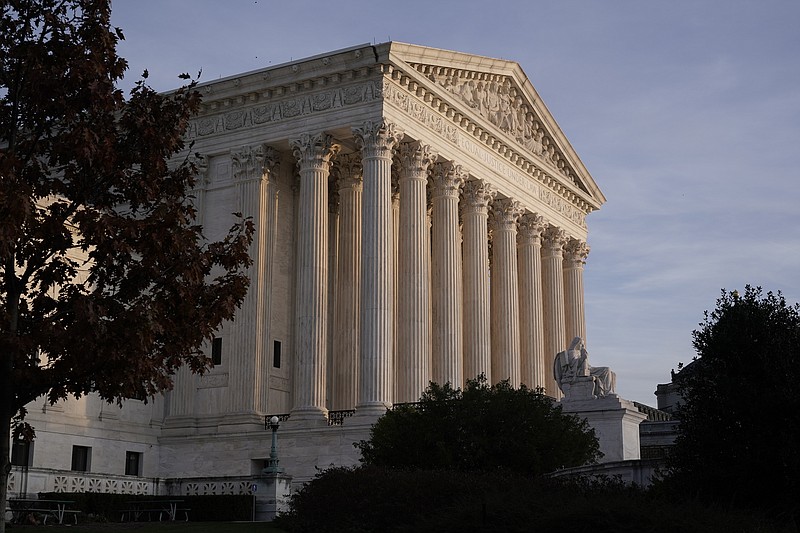WASHINGTON -- When the Supreme Court weighs the fate of "Obamacare" today, arguments will revolve around points of law like severability -- whether the justices can surgically snip out part of the law and leave the rest.
What's at stake has real-world consequences for many Americans, as well as the health care industry, a major source of jobs and tax revenue. Whether the Patient Protection and Affordable Care Act stays, goes or is significantly changed, will affect how life is lived in the U.S.
The argument against the law from the Trump administration and conservative states is that the 10-year-old statute was rendered unconstitutional in its entirety when Congress dialed down to zero a penalty on people who remain uninsured. The court has shifted solidly to the political right under President Donald Trump. Here's a look at some of what's at stake:
Before the Affordable Care Act, insurers could turn a person down for an individual insurance policy or charge the person more based on his medical history. The nonpartisan Kaiser Family Foundation estimates that about 54 million working-age adults have health conditions that would have made them "uninsurable" before former President Barack Obama's signature law.
Tens of millions more have medical conditions that could have led to higher premiums. Gender was one, because insurers routinely charged women more.
Now, having covid-19 stands to become America's newest preexisting condition, for more than 10 million people who have tested positive for it so far.
Under Obamacare, a coronavirus case could not be used to deny someone coverage or charge him more. If the law is gone, that becomes a question.
The law's two main programs for covering uninsured people would be wiped out if the law is overturned, leaving more than 20 million people uninsured unless a divided Congress can put a new safety net in place.
About 12 million low-income people are covered through the health law's Medicaid expansion, now available in most states. Most of them are adults working in jobs that don't pay well and that don't offer health insurance. Some have lost jobs in businesses like hotels, restaurants and movie theaters, which continue to struggle because of the pandemic.
Another group, more than 11 million people, has private coverage bought through taxpayer-subsidized private markets such as HealthCare.gov.
That's also in jeopardy.
Many American women now pay nothing out of pockets for birth control. That's covered as a preventive service, free of charge to the patient, under Obamacare.
Many other services, from colonoscopies to flu shots, are also free.
If people again face co-pays for routine preventive care, some officials say that may discourage participants from getting medical tests that are shown to detect diseases like cancer at early stages when they are easier to treat.
The Affordable Care Act took the first major steps to close Medicare's unpopular "doughnut hole," a coverage gap that used to leave senior citizens on the hook for hundreds of dollars in prescriptions drug costs. Congress later accelerated the timetable.
Repealing the law would mean the return of the coverage gap.
That's just one of many potential consequences to Medicare. The law slowed payments to hospitals and insurers to extend the life of the Medicare trust fund.
One of the earliest benefits to take effect after the passage of the Affordable Care Act was a requirement that insurers allow young adults to stay on a parent's insurance plan until they turned 26.
That provided a longer economic runway for millions of young adults, who back then were struggling with the lingering effects of the 2008 recession. Nowadays it's the consequences of the coronavirus economy.
Before the law's coverage extension, insurers routinely cut off young adults upon graduation.
The Affordable Care raised taxes on upper-income individuals to help finance its coverage expansion.
If the entire law is repealed, that would deliver a tax cut to well-to-do people, many of whom have escaped the worst of the economic shock of the pandemic.
